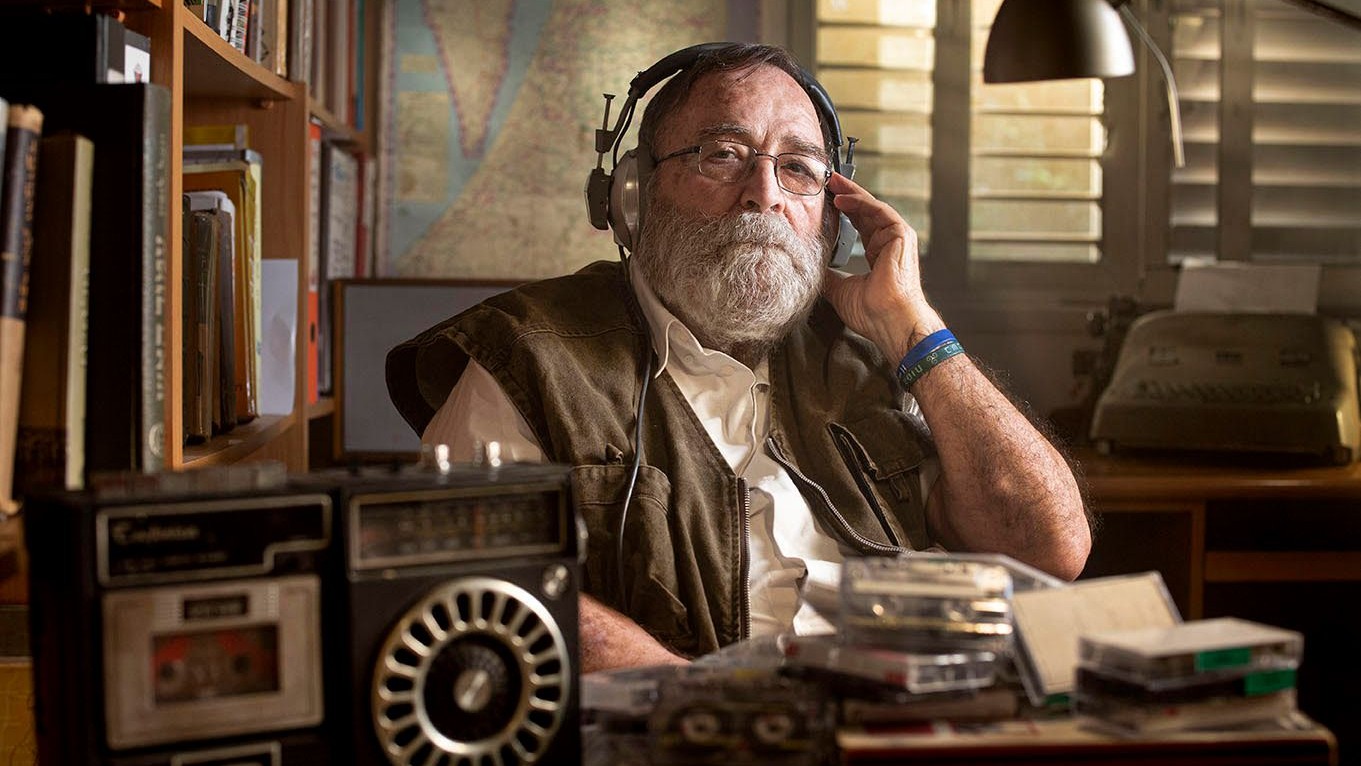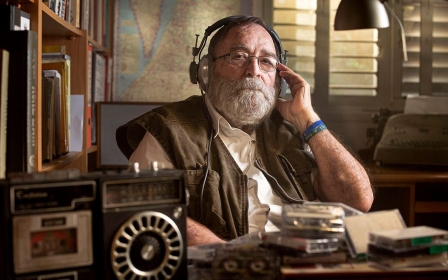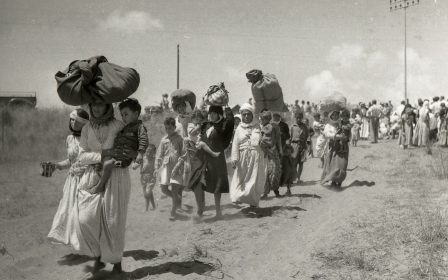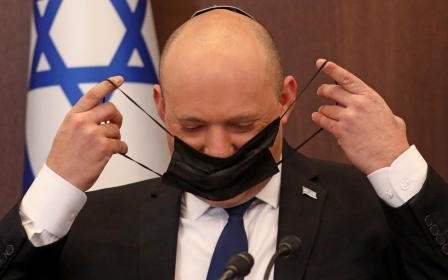Tantura: Documentary on Israeli massacre during Nakba to premiere in London

An "explosive" documentary profiling a massacre of Palestinians by Israeli soldiers during the Nakba of 1948 will premiere in the UK next month.
A screening of Tantura will take place on 22 May at the British Academy of Film and Television Arts in London and is organised by the International Centre of Justice for Palestinians.
The film takes its name from a village on the northern Mediterranean coast of historic Palestine that was ethnically cleansed during the Nakba.
This Arabic word means "catastrophe" and is used by Palestinians to describe their expulsion from their land by Zionist militias during the establishment of the state of Israel.
Directed by filmmaker Alon Schwarz the documentary contains testimonies from soldiers from the Alexandroni Brigade, which took part in the killings and the destruction of the village, as well as from Palestinian survivors.
New MEE newsletter: Jerusalem Dispatch
Sign up to get the latest insights and analysis on Israel-Palestine, alongside Turkey Unpacked and other MEE newsletters
The film has previously played in New York, at the Other Israel film festival, with the event’s organiser, Isaac Zablocki, calling it "one of the biggest documentaries to come out of Israel this year (2022)".
Schwarz’s main subject is the Israeli researcher, Teddy Katz, who collected audio testimony from the soldiers present and studied satellite imagery of a site believed to contain a mass grave of victims of the massacre.
The academic interviewed 135 people who witnessed the killings, equally made up of Jews and Arabs.
A massacre denied
According to Katz, up to 300 Palestinian villagers were killed in Tantura with survivors telling him that they were taken from their beds before being shot.
The massacre has long been denied in Israel and after the publication of his findings in 2000, members of the Alexandroni Brigade sued Katz for defamation.
While a judge threw out the case, Katz felt pressured enough to sign a document saying the massacre did not happen.
MEE spoke with Israeli film director Alon Schwarz about his film Tantura, based on the Tantura massacre of 1948, when the Israeli army carried out a massacre against Palestinians in the small fishing village of Tantura. pic.twitter.com/tttTj15iOA
— Middle East Eye (@MiddleEastEye) December 6, 2022
In all legal hearings related to the case, judges refused to listen to the testimony contained within Katz’s recordings.
Schwarz said this was because doing so would leave “no doubt” in the listener’s mind that the killings happened.
Details of the Nakba are a topic that rarely enters public conversation within Israel but a group of historians known as Israel’s “New Historians” have revisited the events of 1948 and brought together historical documents and testimonies proving widespread abuses during the period.
University of Exeter academic, Ilan Pappe, has collected scores of historical testimonies and records detailing deliberate plans to forcibly vacate Palestinian land to make way for Jewish Israelis.
Reactions
In his film, Schwarz plays audio originally collected by Katz and interviews the ageing participants of the massacre.
“They put them in a barrel, and shot at the barrel, and I remember the blood in the barrel,” says one man speaking in Hebrew in one of Katz’s recordings.
The movie also includes interviews with Israelis who deny any killings took place and Palestinians who recount seeing the bodies of their relatives.
Reviews of Tantura have so far been positive with a 93 percent critic rating on the review aggregator Rotten Tomatoes.
Carlos Aguilar of the Los Angeles Times praised the film for its “unmissable and infuriating insight” but also criticised Schwarz for not covering Israel’s continued mistreatment of Palestinians.
In its review, Variety said the film was a “salvo blast that, for Israel, raises the stakes of truth”.
As the 75th anniversary of the Nakba approaches, there has been a flurry of film releases on the subject.
Israel’s culture minister, Hili Tropper, condemned the Netflix movie Farha as “lies and libel”, joining a chorus of other Israeli officials condemning the film, which is about a girl who witnesses the massacre of her family during the Nakba.
Former minister Avigdor Lieberman said: “It’s crazy that Netflix decided to stream a movie whose whole purpose is to create a false pretence and incite against Israeli soldiers."
More than 700,000 Palestinians fled from lands that would go on to make up the state of Israel. Some were forced out while others left fearing for their lives.
They and their descendants are still not allowed to return home.
Middle East Eye delivers independent and unrivalled coverage and analysis of the Middle East, North Africa and beyond. To learn more about republishing this content and the associated fees, please fill out this form. More about MEE can be found here.





